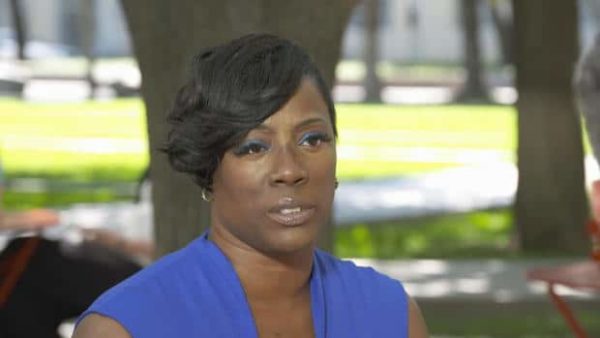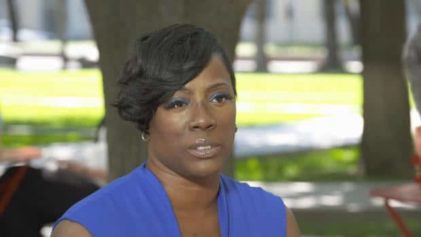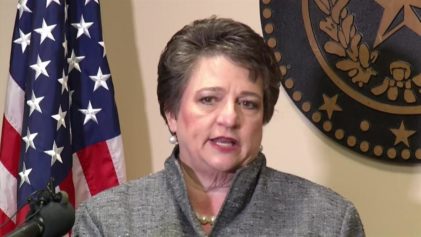Attorneys for Texas woman Crystal Mason continued their appeal Tuesday to have her five-year prison sentence overturned after she was convicted of illegally voting in the 2016 presidential election.
Mason, who was on supervised release from a felony conviction at the time, had cast a provisional ballot, not knowing her status as a felon made her ineligible to vote in the state of Texas. Under state law, felons have their voting rights restored only after their full sentence, including probation/parole, has been served.

In 2018, Crystal Mason was sentenced to an additional 10 months in federal prison for violating the terms of her release. (Image courtesy of CBS News)
Although her ballot ultimately went uncounted, Tarrant County officials brought charges against her anyway, arguing Mason was well aware her voting privileges had been revoked. State officials pointed to an affidavit Mason had signed warning her about voter eligibility — a document that was attached to the back of the provisional ballot.
The mother of three acknowledged not reading the warning, as she was more focused on filling out the other side with her personal information. Mason said she never would’ve run the risk of voting had she known it would land her back behind bars, away from her kids.
“There’s no way that I would have attempted to vote, to leave my children, to lose my job, to go through what I’m going through right now,” she told CNN earlier this year.
According to HuffPo, much of her hearing Tuesday focused on the fact that Mason used a provisional ballot to vote. Her vote ultimately did not count, however, because her ballot was rejected, her attorney, Thomas Buser-Clancey of the Texas ACLU, told the Texas Court of Appeals. He also argued that, under federal law, election officials are required to give folks like Mason a chance to vote if they’re unsure about their eligibility, and it’s determined later if their ballot can be counted.
By prosecuting Mason, the state was essentially criminalizing a process upheld by federal law, according to Buser-Clancey.
“Ms. Mason submitted a provisional ballot and that ballot was rejected,” he explained. “Ms. Mason did not know the state considered her ineligible [to] vote. Ms. Mason was in fact not ineligible to vote. And these are all reasons that we’ve set forth that Ms. Mason’s conviction was wrong under the crime of illegal voting and why the conviction should be overturned.”
The 44-year-old was convicted of voter fraud in March 2018 and found herself back behind bars last August, where she remained until May. That federal sentence came as a result of judges ruling that her conviction in the state voter fraud case violated the terms of her release for her prior tax fraud conviction.
She’s currently forestalled serving her state prison sentence for the voter fraud conviction as she remains free on an appeal bond.
Beth Stevens, a lawyer with the Texas Civil Rights Project, accused state politicians of trying to jail Mason, who was the primary breadwinner for her family, to satisfy their “own insidious agenda.”
“No one should be incarcerated for, at worst, under the state’s theory, making a mistake when they go cast a vote,” Stevens told reporters after Tuesday’s hearing.
Mason’s attorneys have called her case a glaring attempt by the state to scare nonwhite voters and those with past records away from the voting booth.
Activists have also compared her case to others involving alleged voter fraud, such as that of former Tarrant County Justice of the Peace Russ Casey, who was sentenced to five years’ probation after admitting to submitting fake signatures to secure his spot on the primary ballot. A North Carolina woman escaped charges altogether after casting a vote for Donald Trump on behalf of her mother, who had recently passed away.
Both of those defendants were white.
With the hearing now behind them, the three-member, all-Republican panel will determine whether the provisional ballot cast by Mason in 2016 actually constituted a vote.
A date for the decision hasn’t been announced.


